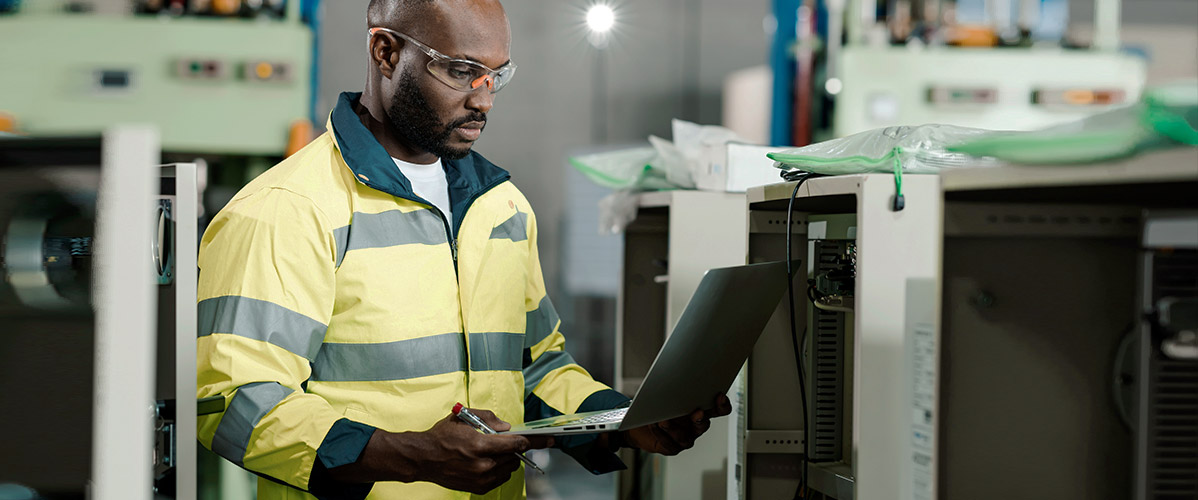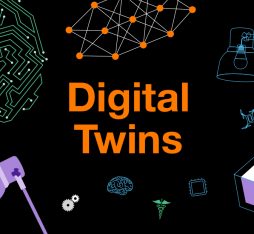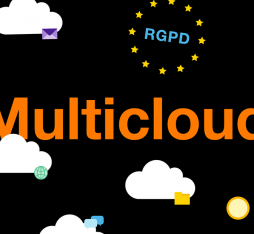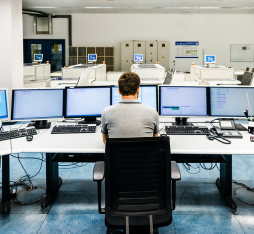“Manufacturers are becoming increasingly aware of the potential benefits of sharing data beyond the walls of their factories.”
As a result of the digital transformation taking place in industry, the digitalization of production lines (use of digital tools, networking of machines, data collection/analysis) and, beyond that, of the entire value chain, is generating growing volumes of data. These are collected by industrial robots, embedded software and all the various components of the IoT.
Manufacturers are seeking to make the most of this wealth of data, thanks in particular to artificial intelligence and machine learning, with the aim of increasing the efficiency, autonomy and adaptability of factories.
Creating value by sharing data
Most manufacturers have so far focused on the data in their ecosystems. Increasingly, they are becoming aware of the potential benefits of sharing data beyond the walls of their factories. According to an estimate by the World Economic Forum and the Boston Consulting Group, this practice could generate additional value of more than 100 billion dollars solely through the optimization of production processes.
Most often, collaboration takes place between a manufacturer and business partners (OEMs, raw material suppliers, transporters, technology companies, customers, etc.) within its value chain. It can also take place between this manufacturer and its competitors or companies outside its sector of activity to meet shared industrial challenges.
The sharing of industrial data is of interest beyond the value chain, as a basis for innovation, be it new production methods, new products or new services. This is one of the reasons why the European Commission is promoting the creation of “common and interoperable data spaces” to facilitate exchanges between Member States and businesses in key areas such as manufacturing.
Cloud platform, blockchain and privacy enhancing technologies
These spaces represent an essential building block for data sharing, which involves combining data from several sources in a single repository. The organization initiating the project thus creates a platform and services for storing, analysing and exchanging data, relying on generalist and specialist Cloud providers. It then tries to convince other organizations to join.
This can be difficult. The sharing of industrial data faces several obstacles related to trust and security. Some companies are afraid of revealing sensitive information and losing bargaining power or competitive advantage. Others worry about losing control of their data or that the value created will escape them. All of them must respect a cybersecurity imperative and minimize the threats that may result from external dissemination of data.
Blockchain technologies, through the creation of a distributed, transparent, decentralized and secure registry that provides a single, shared version of the truth, can solve some of the problems related to trust. They are particularly useful for establishing product traceability in supply chains.
“Privacy-enhancing technologies” (PETs) can be used in situations where there are important issues of industrial property, business secrets or personal data protection. Aiming to reconcile data protection with data exploitation, they generally allow users to pool their data, without disclosing its content, for analysis. Homomorphic encryption, for example, allows calculations to be performed on encrypted data, producing an encrypted result that only the owner of the data can decrypt.
More broadly, participants in data platforms need to define governance models; common rules for access and use of data that ensure security, interoperability and regulatory compliance, and that guarantee a fair distribution of the value generated. According to some, “data trusts” could be an interesting solution.
The automotive industry provides an example
The automotive supply chain is particularly complex. Spare parts are sourced from multiple suppliers around the world and are shipped to different factories. The automotive industry relies on sprawling networks of transporters and logistics processes that require perfect coordination, such as cross-docking (a method of organizing logistics flows that consists of moving goods from the arrival docks of a platform to the departure docks, without passing through a storage warehouse). For this reason, it already provides several examples of industrial data sharing platforms.
Since 2020, Volkswagen’s “industrial cloud” has assembled data from its manufacturing plants and is open to technology service providers and other manufacturing companies. Developed in collaboration with AWS and Siemens on the app store model, this platform is intended to become a marketplace where participants can propose or choose solutions to improve industrial production and logistics. In the same spirit, BMW and Microsoft presented the Open Manufacturing Platform. Built on Azure IoT, the industry standards and open data models of this technological architecture aim to support the development of offerings for the connected factory.
Toyota, Fiat, General Motors and other major car manufacturers are collaborating in AutoSphere, a community of OEMs, suppliers and transport and logistics companies created by Surgere. Acting as a third party, the company provides software and hardware solutions based on sensor technologies, such as RFID tags on returnable containers, that enable the collection and analysis of transactional data at every stage of the supply chain.
Decarbonizing production lines
In 2021, NTT Com announced a successful trial of industrial data sharing between Japan, Germany and Switzerland with a prototype platform using the International Data Spaces (IDS) standard supporting data sovereignty within the GAIA-X ecosystem. The test data, assumed to be highly confidential, was securely transmitted from Switzerland to designated sites in Germany and Japan. The data covered electricity consumption, on the assumption that they would be used by the different parties to calculate CO2 emissions generated by the manufacture of specific products and to review their processes. This experiment demonstrates that sharing industrial data could help minimize the carbon footprint of different sectors of activity.











